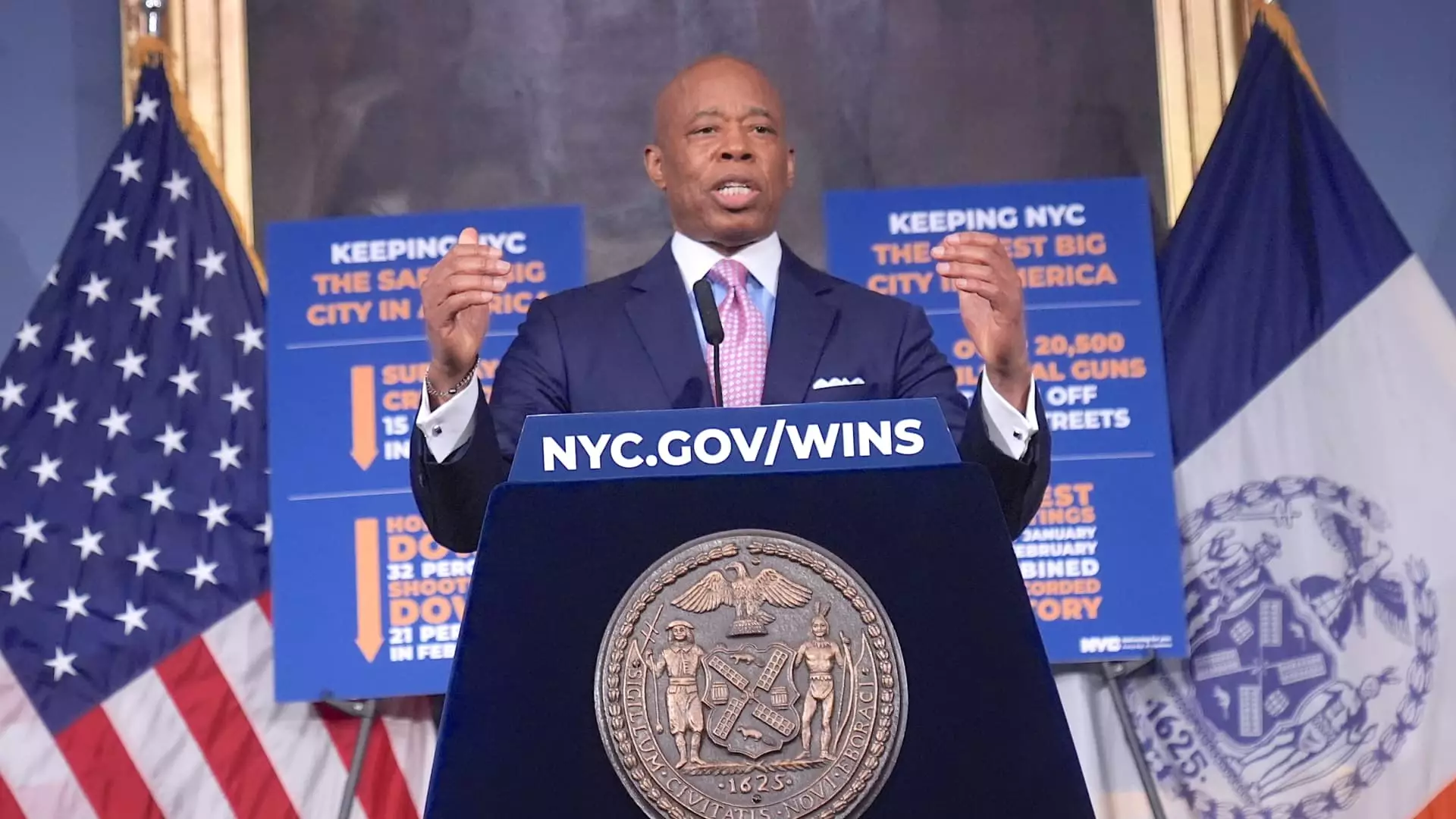In a move that could reshape the political landscape of New York City, Mayor Eric Adams has announced his intention to run for reelection as an independent candidate, a decision he revealed just after a federal judge dismissed serious corruption charges against him. This bold pivot not only symbolizes his strategic rebranding but also reflects the tumultuous political environment that continues to challenge leaders across the nation. The mayor’s announcement comes at a time when a significant segment of the electorate is craving authenticity and accountability, qualities they feel have often been compromised by party affiliations and political gamesmanship.
Adams’s decision to bypass the Democratic primary is significant; it marks a notable departure from traditional party politics and gestures toward a growing disillusionment with party lines and their limitations. He describes his approach as putting “New York’s people before politics,” a sentiment likely to resonate with frustrated citizens seeking leadership that prioritizes the broader community rather than entrenched party loyalty. By positioning himself as an independent, Adams attempts to carve out a distinct identity, promising an approach rooted in the needs of “working people.” Yet one must ask: is this truly a progressive step, or is it a desperate attempt to salvage a tarnished political legacy?
The Specter of Scandal and Redemption
The backdrop to Adams’s campaign launch is marred by allegations of corruption where he faced accusations of accepting over $100,000 in lavish gifts from Turkish nationals during his tenure in local government. The dismissal of these charges, while a relief for his administration, raises eyebrows rather than providing a clear path forward. Critics may be forgiven for asking whether his independent candidacy is a calculated move born out of genuine reformist intent or an evasion under the guise of political independence. The notion of being “handcuffed” by these allegations introduces a layer of complexity; it forces us to evaluate whether the dismissal of charges will renew faith in his leadership or provide ammunition for further scrutiny of his actions.
In his self-proclaimed unshackled state, Adams aims to focus on fostering a “solid base of people” beyond Manhattan, tapping into an electorate that feels unheard. This move towards grassroots campaigning reflects the shifting dynamics of engagement in a city rife with political division. Yet one must ponder if Adams can genuinely connect with voters outside his traditional base. Without true accountability and transparent communication, this seems more like an opportunistic maneuver than a heartfelt outreach.
The Charged Atmosphere of New York Politics
Amid his recalibrated strategy, the electoral landscape remains rife with competitors, including multiple Democratic candidates, former Governor Andrew Cuomo among them. Adams’s assertion that he will bring a stronger record to the race is an ambitious claim amidst such a crowded field, but the scrutiny over his past actions lingers like a cloud. The emergence of independent candidates represents a critical juncture in New York politics, where party loyalty is increasingly scrutinized, and voters are demanding leaders who are willing to act outside traditional frameworks.
However, radical shifts such as Adams’s independent campaign are not without risk. They can fracture existing party coalitions and create further polarization among voters. His gamble to distance himself from the Democratic establishment could alienate essential voter blocs, especially those committed to party alignment. The question is whether the “independent” label will widen his appeal or confine him to a niche audience of disenchanted voters.
Challenging the Status Quo
In this politically charged climate, Adams’s evolution into an independent candidate is emblematic of a larger societal shift: a move towards a more responsive leadership approach that transcends partisan shackles. The core of his narrative hinges on authenticity—an essential quality that resonates in a city grappling with an array of complex challenges from crime to housing. However, authenticity must be backed by genuine reform and a commitment to address the systemic issues that have plagued New Yorkers for too long.
As the mayor embarks on this unchained journey toward reelection, he stands at a crossroads filled with opportunities and pitfalls, demanding keen introspection from both him and the electorate. Will he deliver on his promises of independence and working-class advocacy, or will his campaign dissolve into the conventional rhetoric that has too often defined New York City’s political narrative? The stakes have never been higher, and the road ahead remains uncertain, yet one thing is clear: the decision to run as an independent promises a riveting chapter in the ongoing story of New York City politics.



Leave a Reply